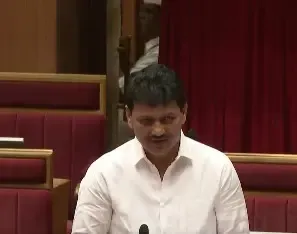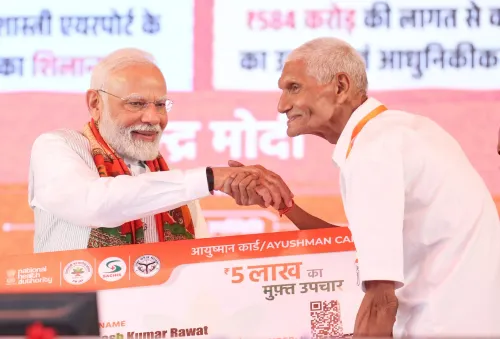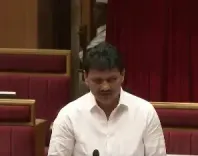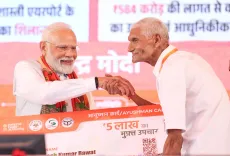Why is India Rapidly Signing Trade Deals While the US Lags?
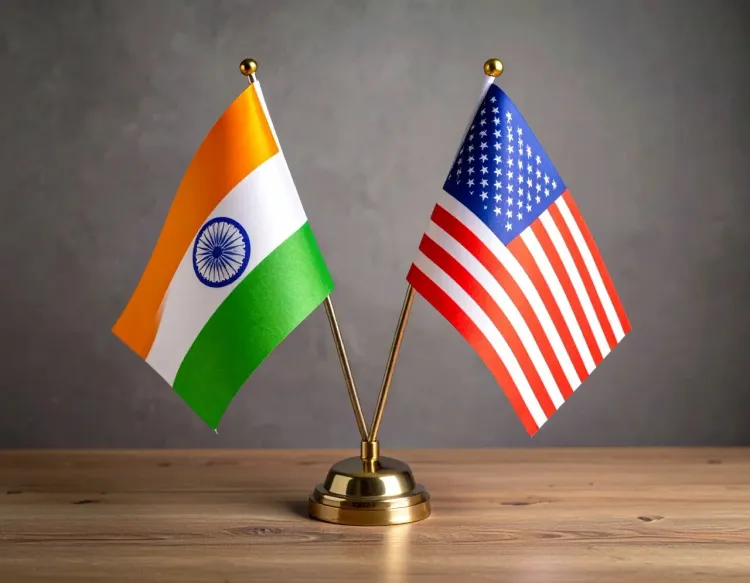
Synopsis
Key Takeaways
- India is rapidly signing trade agreements, enhancing its global position.
- The recent UK trade deal represents India's strategic partnerships.
- Negotiations with the US are ongoing, highlighting the complexity of international trade.
- India's actions reflect a balance between national interests and global engagement.
- Resuming tourist visas for China indicates a potential improvement in bilateral relations.
New Delhi, July 26 (NationPress) As India forges ahead with trade agreements at an astonishing rate, including its recent pact with the UK, the eagerly anticipated agreement with the US remains elusive amidst intense negotiations between the two nations.
A report from Newsweek indicates that despite some optimism expressed by US President Donald Trump and Indian officials, a trade deal is still not in place. Sanjeev Sanyal, a member of Prime Minister Narendra Modi's Economic Advisory Council, remarked, "We aspire to engage with the world, including the West, on terms of equality."
He further stated, "While we recognize that Western countries have their own interests, we too have ours. We will advocate for our priorities. This does not imply that we are unwilling to engage or make reasonable compromises," as quoted in the publication.
Lisa Curtis, director at the Centre for a New American Security, suggested that the Trump administration should consider making concessions to India for the sake of enhancing the broader strategic partnership.
She noted, "India's successful trade agreement with the UK illustrates that it has global trading alternatives and is not in a position of desperation to compromise its agricultural sector for a deal with the US."
In a related development, India has reinstated tourist visas for Chinese citizens, lifting a five-year suspension.
During a meeting with Indian Foreign Minister S. Jaishankar this month, Chinese Foreign Minister Wang Yi emphasized, "China and India should focus on fostering good neighborly relations and friendship."
These actions highlight India's growing influence as a global swing power, according to geopolitical analysts cited in the report.
The landmark India-UK Free Trade Agreement (FTA) is perceived as significant for both geopolitical strategy and economic exchange.
The report clarifies that the deal was not rushed; negotiations that began in May 2022 extended over three years, involving complex domestic considerations to safeguard farmers, small businesses, and service sectors on both ends.
This agreement transcends mere trade, as noted by UK opposition Conservative MP Bob Blackman, who stated to Newsweek that it signifies a transformation in how both countries view power and partnership.


